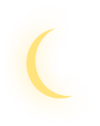

DESIGN GOAL
Give users the opportunity to find discounted surplus food while helping businesses reduce food waste.
Role
Sole Designer
Timeframe
4 months
UX Goal
Help consumers save money on food and inspire them to take action against food waste
Quick & Convenient
Each element is designed for glanceability and efficiency
Make it Effortless
Provide clarity for users to save time when checking out time sensitive items
Stay Reliable
Ensure transparency for each item such as ingredients, expiration date and allergens
Design Principle



Awareness
The word JEGO originates from the Korean word inventory as the project was inspired in S. Korea
The timer in the logo represents time-sensitivity and a high turnover rate of inventory
Minimal Design
Prioritize simplicity in design to support a high turnover rate
Eco-friendly
The mascot EGGO portrays friendliness. Its colors represent sustainability, comfortable visibility with high contrast
Color

The colors for JEGO represent sustainability and friendliness.
Rationale: Selected colors provide a sufficient contrast to enable visibility of icons and text.
Typography

The type scale cascades from 24 to 12.
Main body text ranges from 24 to 16 and is used for primary text. Sub text sizes are best reserved for non crucial information.
User Interview Highlights

Holding virtual interviews with participants from both South Korea and USA were helpful to validate the global issue of food waste.
Universal insights: All 6 interviewees were on a tight budget when shopping for food, and the process of cooking at home was a constant struggle.
Rationale: After the interviews, it gave me a better understanding of the target user.
Meet our user persona Kelly in the next section.
User Persona

How Might We

Guerilla Testing

The initial solution was to Budget, Browse & Discover local grocery stores for deals.
Key Insights
- Users did not find the budgeting feature productive.
- Without the feature to checkout selected grocery items, users found the shopping list feature redundant.
Due to the key findings of usability tests, I took a difference approach.
Iterative Design Process

Based on the initial sketches and wireframes, the budgeting feature was removed.
MVP: Users would explore local stores for food on clearance, checkout and pick up items purchased.
Rationale
- Provide users with clearance deals from local stores.
- Prioritize time sensitive items.
- Allow flexibility for users to checkout and pickup purchased items.
Heuristic Evaluation

Previous

Current
Showing in the frames are major iterations from low fidelity to high fidelity screens after a second round of usability testing.
- Changed the accent color for a brighter and friendlier outlook.
- Darkened the text color to support a higher contrast.
- Updated the format of login screen to what users are familiar with.
Interaction Design

Previous

Current
Combined features on the previous Search screen with the current Home Screen.
UX goals and rationale
- Simplified the app by combining alike features and designs.
- This provides users an option to easily access their orders on navigation bar.
- Made the “Add to Cart” CTA more visible with high contrast for time-sensitive items.
User Freedom

Previous

Current
Rearranged the format of Order Confirmation page.
UX Goals and rationale
- Simplified the checkout page for ease of glanceability.
- Provide quick access to QR code without the need to scroll.
Consistency and Efficiency

Previous

Current
Minimized confusion for users when deleting an item on the Favorites page. 3 out of 5 users were unable to delete an item when prompted during usability test.
UX Goals and rationale
- Designed the current screen with iOS users in mind.
- Provide flexibility for users to not only ‘Delete’ an item but also ‘Add to Cart.’
Interactive Prototype
Key Takeaways
- Do not attempt to reinvent the wheel (i.e. login page) and stick to designing familiar and existing formats for users.
- Consistency in visual design and design system is key.
- Mapping out a strong wireframe and prototype should not be overlooked.






